How politics and the Senedd have changed in one year
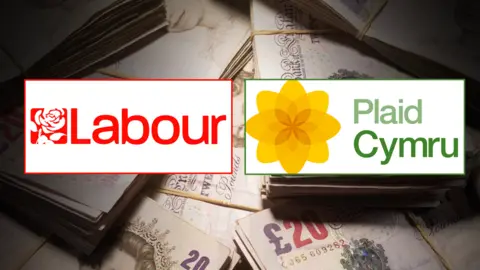 Thinkstock
ThinkstockA year ago, Labour found themselves clinging to power in the assembly after reaching a deal with Plaid Cymru.
Now, 12 months on, the party finds itself in a much stronger position and with an effective majority after Dafydd Elis-Thomas said he would back the Welsh Government after leaving Plaid and sitting as an independent assembly member.
And though Labour lost more than 100 seats in the Welsh local elections, the losses were not as severe as many had anticipated.
A month later, the party gained three Welsh MPs at the general election.
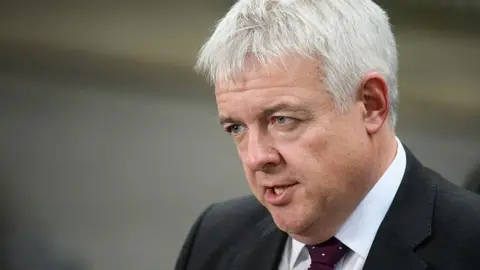 Getty Images
Getty ImagesFirst Minister Carwyn Jones told BBC Wales the past 12 months had been "hectic".
"It's been a pretty busy year," he said.
He added Brexit had dominated discussions - but it was important to make sure focus on other issues was not lost.
"Our voice has got stronger over the past 12 months," he said. "We're very clear that we've taken a position on Brexit, we want to work with others to make sure we take that position forwards.
"What we have to avoid of course is Brexit dominating so much that we lose focus on what people want to see - which is public service delivery, health, education, job creation.
"So whilst Brexit sits there in the background, it's not the only thing we do."
Meanwhile it has been a mixed year for the Welsh Conservatives.
Following Mr Elis-Thomas' defection and Mark Reckless' decision to leave the UKIP group and sit alongside Conservative AMs, the party has overtaken Plaid Cymru as the second largest group in the assembly.
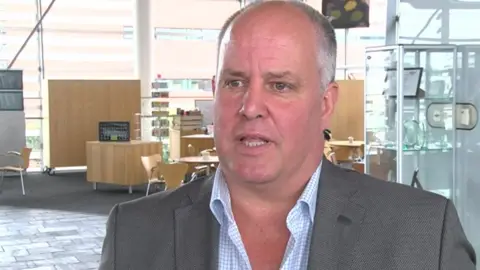
The party also made significant gains in May's council elections, but lost three seats at the general election.
"It's been a good year for the Welsh Conservatives in the assembly - we're the official opposition here," the party's leader, Andrew RT Davies said.
"[The general election] was a two-sided coin really; the overall vote share went up dramatically for us but sadly we lost three very good colleagues."
Welsh Conservative sources have talked of their frustration at the way the campaign - even in Wales - was built around Prime Minister Theresa May and run by her team.
Should Mr Davies have had more influence?
"It's easy to look back and obviously say, 'I told you so," he said.
"But we work together with colleagues to make sure we're in the best place possible for the next set of elections that come.
"We had a very successful local government campaign here in Wales.
"That was a Welsh-led campaign, a Welsh-inspired campaign that delivered real results for the Conservatives here in Wales."
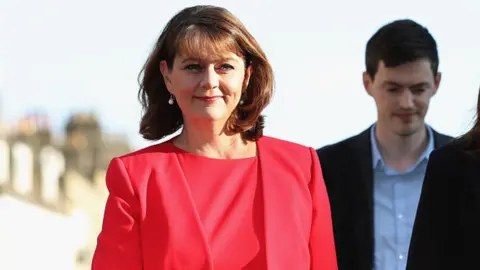 Getty Images
Getty ImagesPlaid Cymru did win a fourth parliamentary seat on 8 June and made limited progress in the local elections.
But in the assembly, Mr Elis-Thomas' defection saw Plaid lose ground.
"I think the decision on his part was the right one for both us - it suits us both mutually and both parties are happier as a result," said Plaid leader Leanne Wood.
And Ms Wood believes the assembly's arithmetic could yet change again.
"Strange things are happening in politics and allegiances are being made particularly because the Brexit question goes across different party divides," she said.
"So I think possibly the assembly that we've got now may not be the assembly that we end up with."
But what about her own, much-debated, decision not to stand as Plaid's candidate for the Rhondda at the general election?
"I think I made the right decision," she said.
"I'm needed here in the National Assembly - this is Plaid Cymru's focus, this is where we want to become the biggest party. I've no regrets whatsoever."
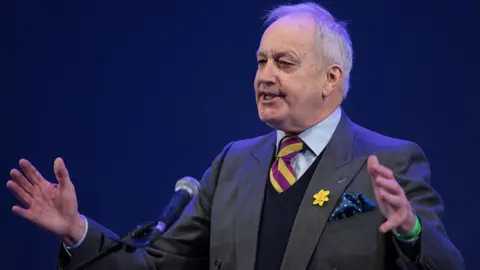 Getty Images
Getty ImagesUKIP are approaching the end of their first full year in Cardiff Bay.
"We've certainly made our presence felt," said Neil Hamilton, the party's group leader in the assembly.
"And I think I've added a bit of colour to the proceedings as well, which hasn't always been to everybody's taste."
UKIP's presence in the Senedd has reduced from seven AMs after the 2016 election to five following Nathan Gill's decision to sit as an independent AM and Mr Reckless' defection.
However, Mr Hamilton does not anticipate any further losses.
"I'm perfectly confident that our remaining five members are solidly together," he said.
UKIP failed to win any Welsh seats at the local or general election and Mr Hamilton accepts the party has work to do having achieved its central aim of securing a Leave vote in last year's EU referendum.
"Our big challenge for next year and the year after is to establish UKIP's purpose in a post-Brexit Britain."
- Watch Sunday Politics Wales on BBC One Wales at 11:00 BST, Sunday 16 July
